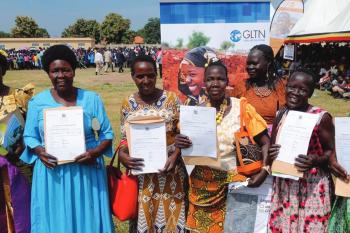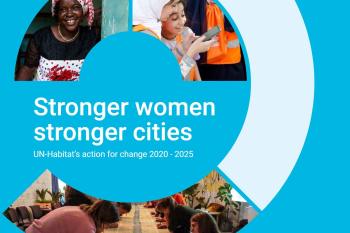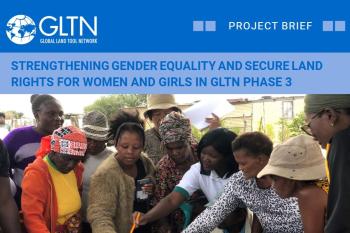
Read More
Gender Strategy for Land-at-Scale Uganda
Women’s Land Rights (WLRs) are fundamental human rights, foundational to gender equality and women’s dignity and instrumental in improving food security, effective climate action, poverty eradicati

This report develops a framework for evaluating continuum of land rights scenarios. Building on existing evaluation initiatives that focus on land tenure and the associated administrative systems, the report addresses an important gap by providing a framework for evaluating land rights scenarios along the continuum of land rights according to the purposes of a particular evaluation.
The Continuum of Land Rights is gaining traction to guide official recognition of various different tenure types. The Continuum offers an alternative approach to the dominant focus on titling of individually held private property as the ultimate form of tenure security, or the end goal of land tenure reforms.
A tenure type that best suits both the cultural and economic needs of local communities and the needs of land administration authorities at a particular time is advocated. The continuum approach is increasingly being followed by land actors in initiatives aimed at securing tenure security for all. The framework is structured so that continuum scenario evaluations may be harmonised with other land tenure evaluations.
When applied in a particular jurisdiction, the purposes of the evaluation, such as a need to measure the status of a situation, the need to explain that situation, or the need to design and implement improvements to that situation should first be determined, and an appropriate evaluation methodology and set of methods should be selected. At the same time an assessment should be made of how the evaluation would fit into a larger set of evaluations for land administration and community planning in that jurisdiction.

Women’s Land Rights (WLRs) are fundamental human rights, foundational to gender equality and women’s dignity and instrumental in improving food security, effective climate action, poverty eradicati

This publication presents a summary of UN-Habitat’s gender equality impact over the past five years, in line with the Beijing reporting cycle.

GLTN’s institutional commitment to gender equality and secure land rights for women and girls has been at the core of its work since inception in 2006.